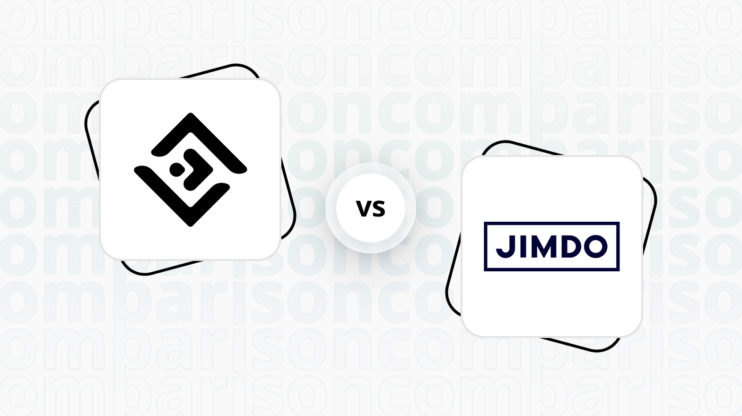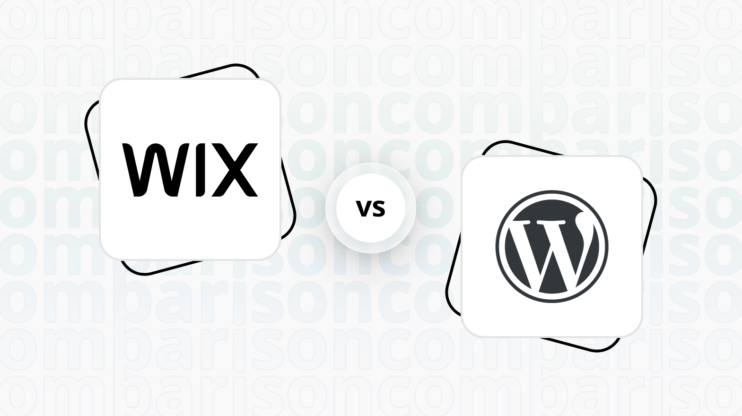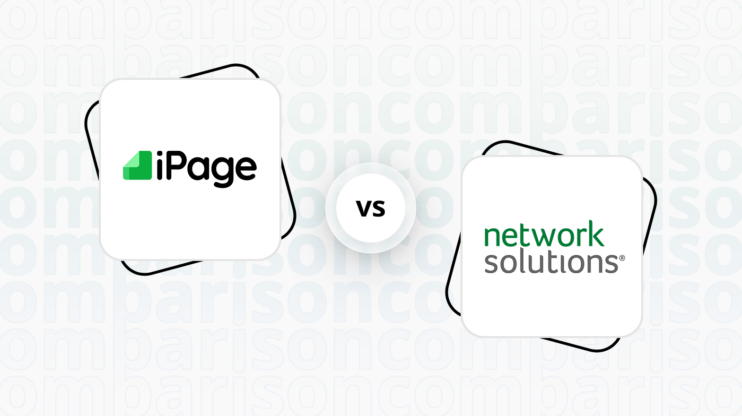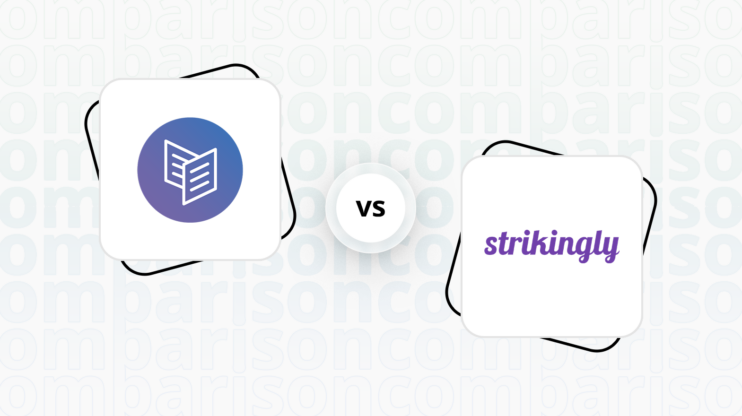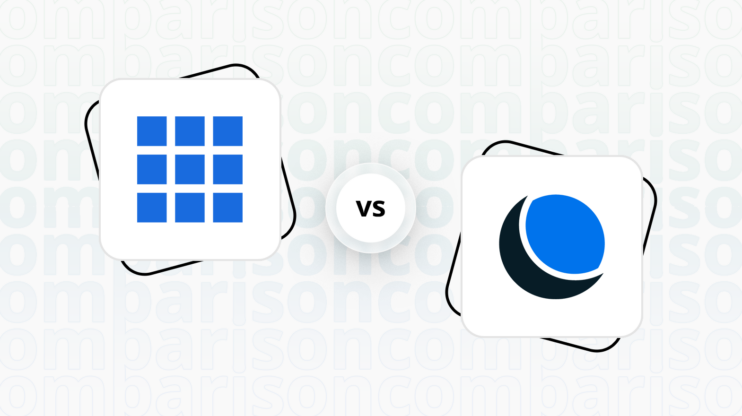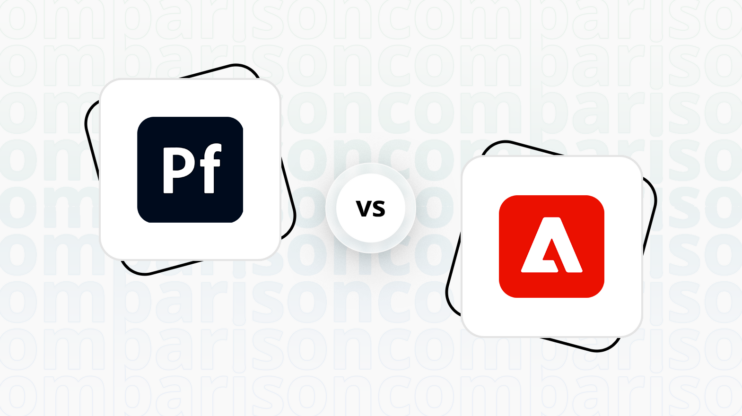Final verdict
Yola and Jimdo offer unique strengths for different user needs, with Jimdo slightly leading in overall score.
-
Yola (Overall Grade: 6.5/10)
is praised for its user-friendly design and comprehensive user management system, making it a solid choice for individuals and small businesses looking to create professional websites without advanced technical skills. Yola’s managed cloud hosting with a 99.9% uptime guarantee and its flexibility in user management stand out as key advantages. However, it falls short in areas like ecommerce capabilities and AI features, which could limit its appeal to users looking for advanced functionalities. -
Jimdo (Overall Grade: 7.2/10)
shines with its ease of use, particularly through its AI-driven website builder, and its slightly better performance in ecommerce and website speed optimization. Jimdo’s broader range of plugins and integrations, along with its marketing tools, make it a more versatile option for users aiming for a comprehensive online presence. While it offers less in terms of user management compared to Yola, its overall package is more appealing for users looking for a blend of simplicity and functionality.

|

|
|
|---|---|---|
|
Design functionalities & templates |
7.2 |
7.2 |
|
Ease of use |
8.0 |
8.0 |
|
Ecommerce |
5.7 |
7.0 |
|
Website Editors |
6.7 |
7.8 |
|
Product testing options |
7.5 |
6.4 |
|
Price |
8.1 |
7.5 |
|
Hosting quality |
7.2 |
6.7 |
|
Website speed optimization |
7.5 |
7.6 |
|
Plugins and integrations |
6.3 |
7.4 |
|
Marketing features |
6.5 |
7.2 |
|
Customer support |
6.3 |
6.8 |
|
Security |
8.3 |
8.3 |
|
AI capabilities |
0.0 |
6.0 |
|
User Management |
7.3 |
5.8 |
| Overall |
6.5 |
7.2 |
Best for ecommerce
 5.7
5.7
 7.0
7.0
Verdict
: Jimdo takes the lead in ecommerce over Yola, offering a more user-friendly experience and better integrated ecommerce features.
-
Yola
: Yola provides basic ecommerce functionalities suitable for small online stores. Its integration with Ecwid for ecommerce capabilities means it can cater to businesses looking to start small, but may face limitations in scalability and customization. -
Jimdo
: With a higher score in ecommerce, Jimdo stands out for its ease of use and built-in ecommerce features. It’s designed for entrepreneurs and small businesses seeking a straightforward platform with effective product management, secure payment processing, and mobile-friendly shopping experiences.
Best for informational & business websites
 7.4
7.4
 7.4
7.4
Verdict
: With identical scores for informational and business websites, both Yola and Jimdo offer compelling features for creating professional online presences. The choice between them may come down to specific needs and preferences.
-
Yola
: Yola shines with its user-friendly design and a variety of templates, making it a solid choice for those looking to create professional-looking websites without needing advanced technical skills. Its focus on responsive design ensures that websites look great on any device, which is crucial for businesses aiming to reach a broad audience. -
Jimdo
: Jimdo stands out for its simplicity and ease of use, particularly beneficial for individuals and small businesses. Its AI-driven website builder, Jimdo Dolphin, offers a streamlined web design process, making it an excellent option for users with basic computer skills or limited time to dedicate to website creation.
Detailed comparison
Design functionalities & templates
Design FunctionalitiesRepresents how well each platform allows for creative design and customization of websites.Score Components:
- Template Variety (30%): Range and quality of design templates.
- Customization (30%): Flexibility and options for design alterations.
- User Interface (20%): Ease and intuitiveness of the design process.
- Responsiveness (10%): Adaptability to different devices and screen sizes.
- Innovation (10%): Unique design features and tools.
 7.2
7.2
 7.2
7.2
Winner: Tie.
Both Yola and Jimdo offer a diverse range of templates and design functionalities, making them suitable for various types of websites.
Yola offers a diverse range of templates and designs, catering to various types of websites, from personal blogs to professional business sites. Users can choose from a wide selection of themes, each customizable to fit their specific needs and preferences.


On the other hand, Jimdo offers a diverse range of templates suitable for various industries and user preferences, with options to preview and select templates easily. The platform allows flexibility in changing templates for existing websites and also provides a “Blank Template” for custom designs, catering to both beginners and advanced users.


Get a head start on website creation with AI
Create a custom website tailored to your business needs 10X faster with 10Web AI Website Builder!
Ease of use
Ease of useReflects the platform’s overall user-friendliness.Score
Components:
- Learning curve (40%): Quickness and ease of getting started.
- Interface design (30%): Simplicity and intuitiveness of layout.
- User guidance (20%): Quality of tutorials and support.
- Flexibility (10%): Adaptability to various user skills.
 8.0
8.0
 8.0
8.0
🏆 Winner: Tie
. Both Yola and Jimdo score an 8.0 in ease of use, making them equally user-friendly for beginners and small businesses. Yola offers a simple drag-and-drop interface and a range of templates, while Jimdo provides an AI-driven website builder for a guided design process.
Learning Resources
🏆 Winner: Yola
. Yola provides a variety of learning resources, including tutorials, guides, and video tutorials, to support users of all skill levels. Jimdo also offers user-friendly learning resources, but Yola’s interactive video guides could enhance the learning experience.
For ecommerce
EcommerceMeasures the platform’s effectiveness in supporting online business activities.Score Components:
- Ecommerce themes and templates (20%): Variety and design of templates.
- Product management (25%): Ease of managing and organizing products.
- Payment options (25%): Variety and convenience of payment methods.
- Ecommerce features (20%): Features for managing an ecommerce store.
- Integration (10%): Compatibility with external e-commerce tools and services.
 5.7
5.7
 7.0
7.0
When it comes to ecommerce, Jimdo seems to have a slight edge over Yola. Jimdo’s built-in ecommerce features, including easy product management, secure payment processing, mobile-friendly shopping experiences, and built-in marketing tools, make it a suitable choice for entrepreneurs and small businesses. On the other hand, Yola’s ecommerce capabilities are provided through an integration with Ecwid, which may limit its scalability and customization options.

|

|
|
|---|---|---|
|
Ecommerce themes and templates |
5.5 |
6.5 |
|
Product page customization |
6.8 |
6.8 |
|
Payment processing and commissions |
7.0 |
7.5 |
|
POS capabilities |
4.5 |
5.0 |
|
Payment gateways |
7.5 |
7.0 |
|
Product numbers |
7.0 |
6.0 |
|
Additional ecommerce features |
6.0 |
6.5 |
Yola ecommerce features:
- Shipping and Tax configurations
- Product Catalog Management
- Ability to checkout as guest
- Analytics and reporting
- Promotions features
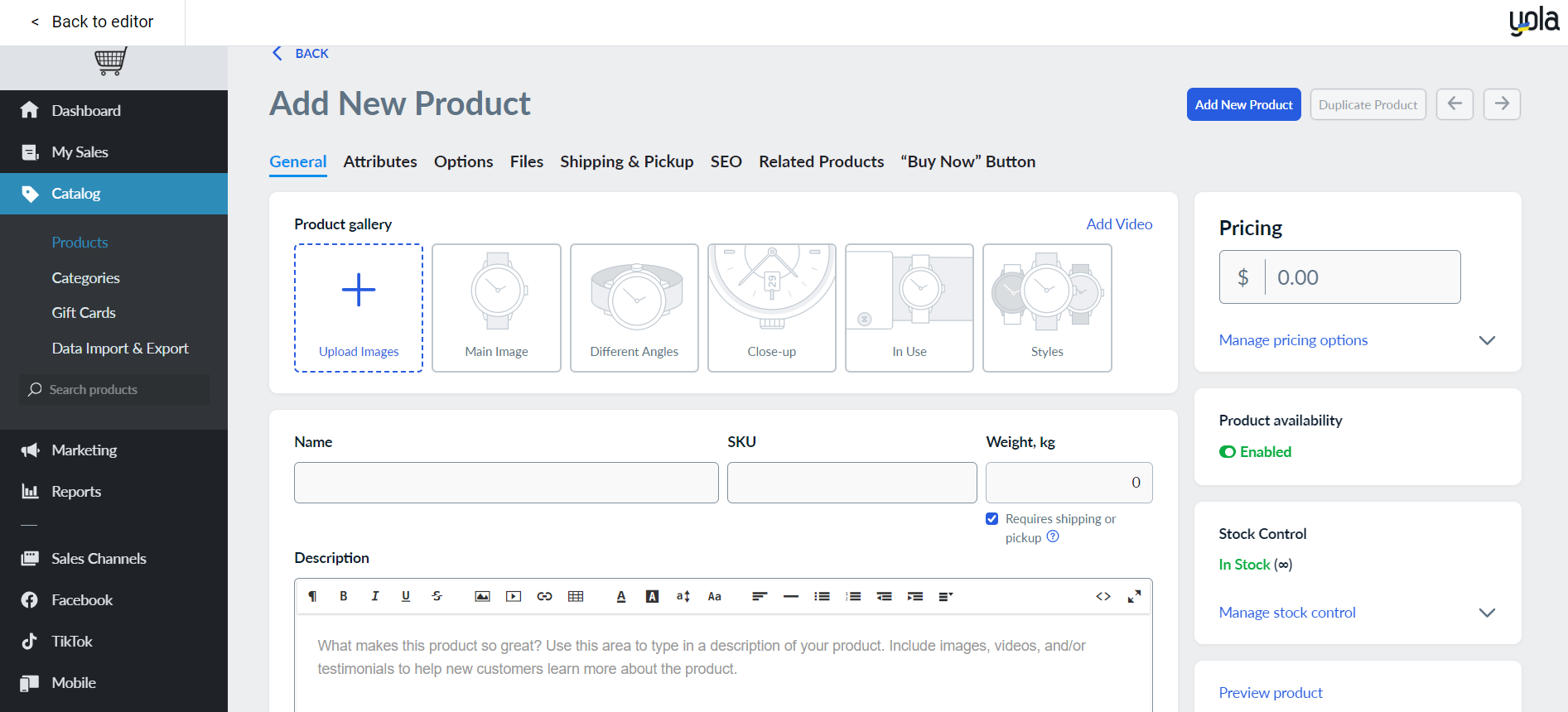
Jimdo ecommerce features:
- Product details and variations
- Inventory tracking
- No transaction fees
- Discount codes and promotions
- Email marketing
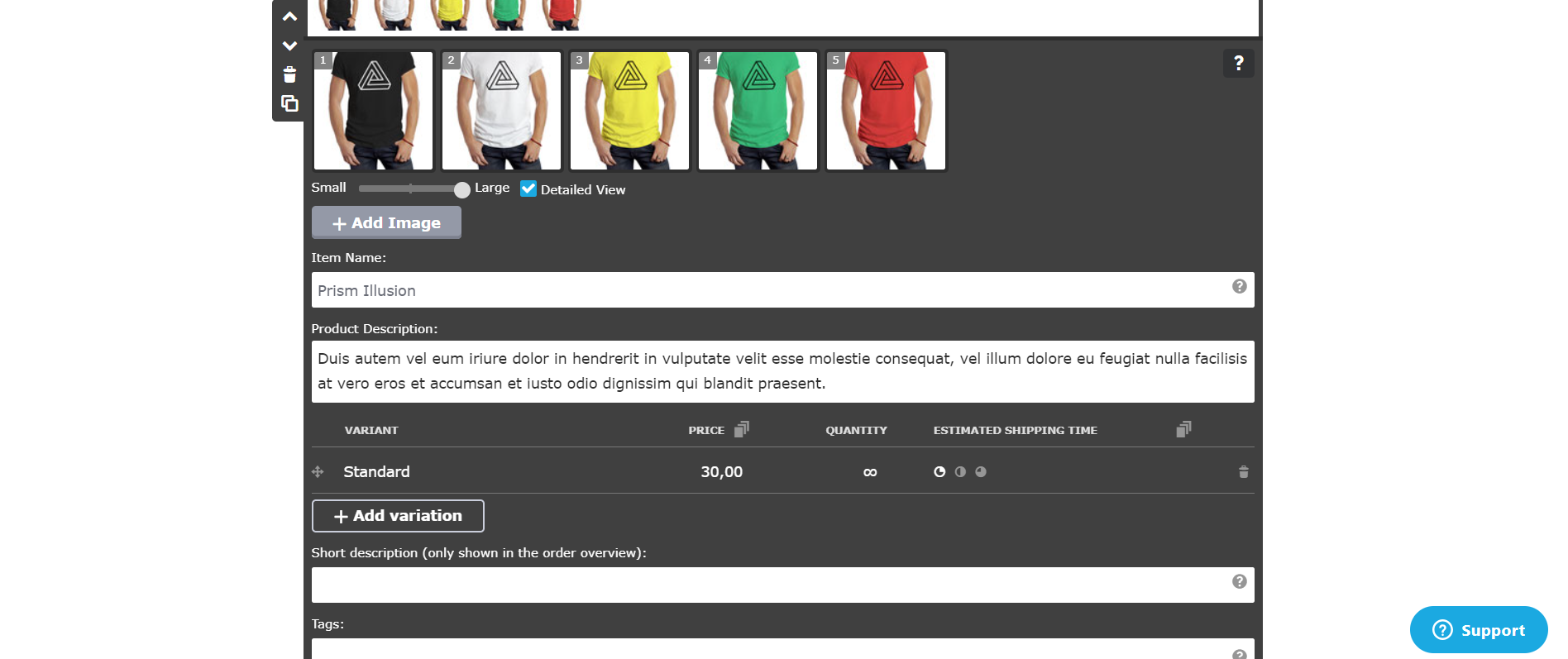
Ecommerce themes & templates
Yola offers a range of templates suitable for ecommerce, but the variety and design quality may not match those provided by other leading website builders. The templates are customizable, especially for users on higher-tier plans (Silver or Gold), which allow for deeper customization, including CSS editing. In contrast, Jimdo’s ecommerce templates offer a diverse range of pre-designed themes, ensuring a mobile-friendly and smooth shopping experience. The drag-and-drop interface allows for easy customization of colors, fonts, and layouts.
Product page customization
Yola’s eCommerce platform offers a variety of customization options for your product pages, including the ability to manage product options and combinations. This feature is especially useful for selling items that come in different sizes, colors, or models. On the other hand, customizing a product page on Jimdo involves using its user-friendly interface to personalize various elements. You can edit text, add images, adjust layouts, and modify design elements like colors and fonts to showcase your products effectively.
Payment processing
Yola supports various payment gateways for online store transactions, such as PayPal, Sage Payments, and American Express, allowing users to choose based on their specific needs, including geographical availability and fee structure. While Yola doesn’t directly charge commission fees for transactions, the chosen payment gateway might impose its own fees. Jimdo facilitates payment processing through various popular gateways like PayPal, Stripe, Mollie, and more, depending on your location and plan. While Jimdo doesn’t impose transaction fees, individual payment gateways may have their own charges.
Considering the features, availability, cost, and flexibility, Jimdo appears to be a more robust and flexible ecommerce solution compared to Yola. However, if you are looking for a more budget-friendly option with some free extras, Yola might still be worth considering.
Website Editors
Website EditorsEvaluates the platforms’ website building and editing capabilities.Score Components:
- Customization tools (40%): Range and power of editing features.
- Editor usability (30%): User experience within the editor.
- Design flexibility (20%): Freedom in layout and design changes.
- Update and maintenance ease (10%): Simplicity of updating and maintaining the site.
 6.7
6.7
 7.8
7.8
🏆
Winner: Jimdo
. Jimdo, with a score of 7.8, offers two main modes: Jimdo Dolphin and Jimdo Creator. Dolphin, an AI-driven tool, is ideal for beginners and creates websites based on user responses to a series of questions, streamlining the web design process. On the other hand, Jimdo Creator provides a more traditional website building experience with greater customization options, including a drag-and-drop editor and HTML widgets, catering to users seeking more control over their site’s design.
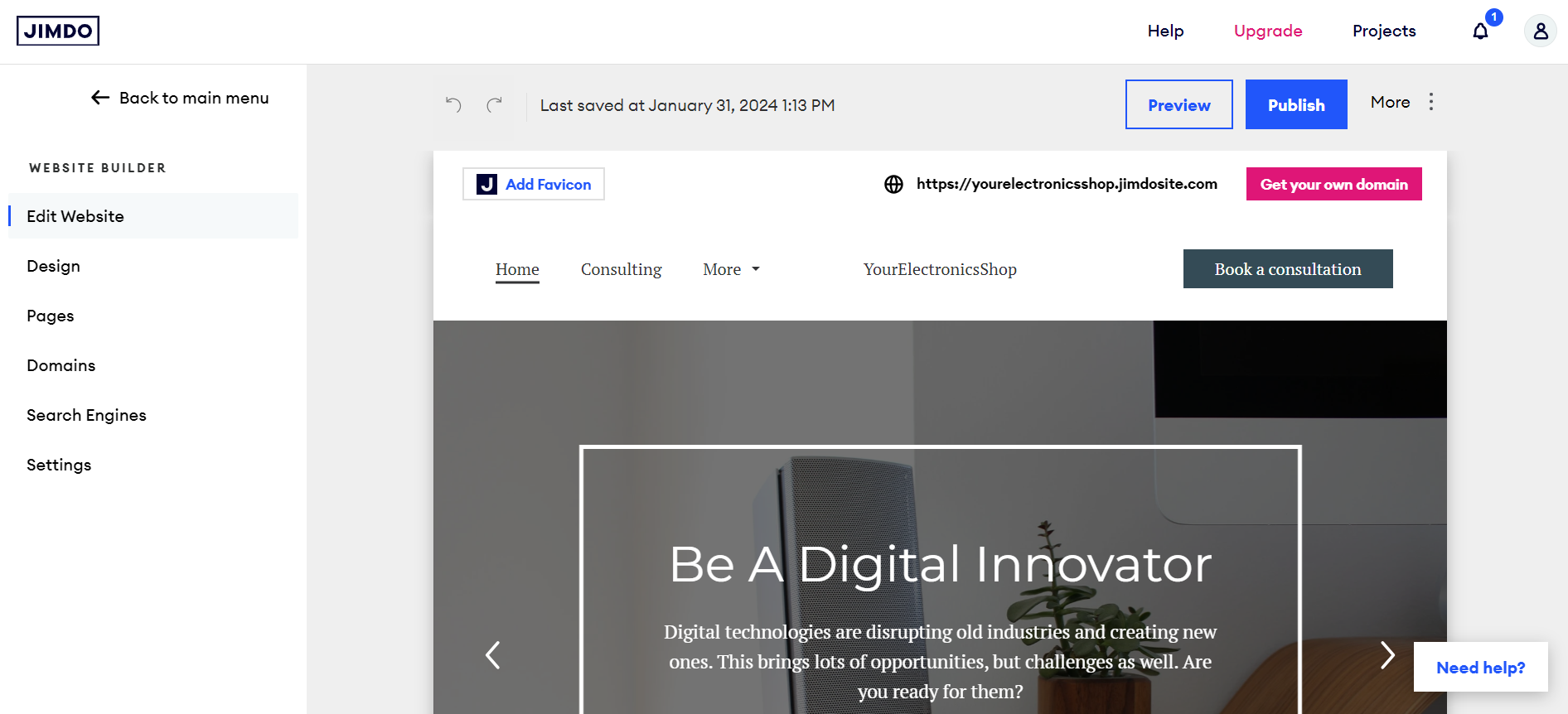
Yola’s website builder editor, scoring 6.7, is designed for ease of use, allowing users to create professional-looking websites without needing coding knowledge. It offers a drag-and-drop interface, enabling users to easily add, customize, and position elements like text, images, and buttons on their web pages. The editor also provides access to a wide range of templates and customization options, including color schemes, fonts, and page layouts, to help users achieve their desired website look and feel.

Mobile editor/app
 4.5
4.5
 8.0
8.0
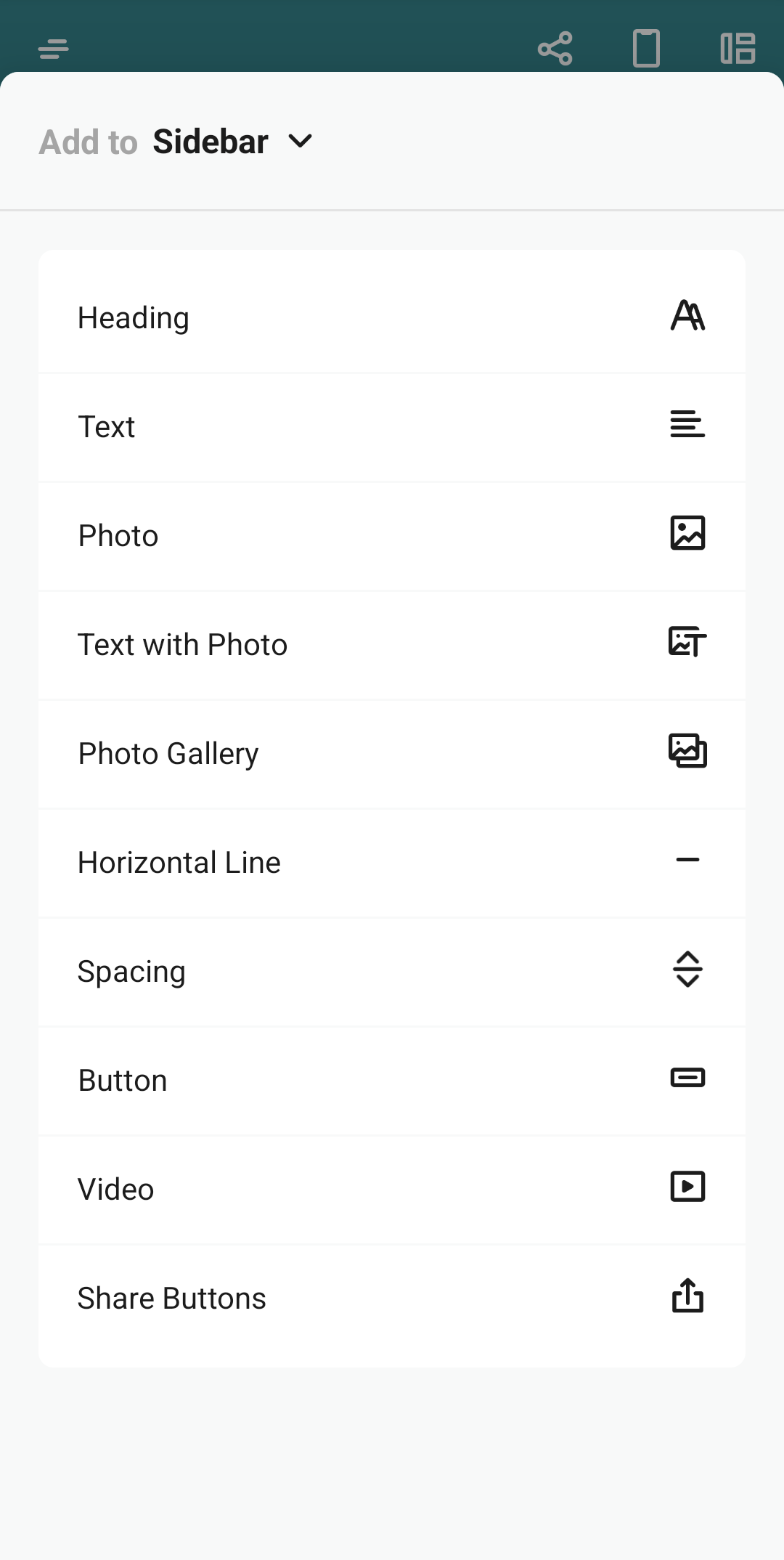
🏆
Winner: Jimdo
. Both Yola and Jimdo offer mobile-friendly websites, but only Jimdo provides a dedicated mobile editor app. This app allows users to create and manage their websites directly from their smartphones or tablets, providing a convenient way to edit and update your site on the go, including adding or modifying content, adjusting design elements, and managing your online store.
On the other hand, Yola does not have a dedicated mobile editor app. While it is possible to make some small changes using a mobile browser, the lack of a dedicated app limits the convenience and functionality of mobile editing for Yola users. Therefore, Jimdo is the clear winner in this category due to its superior mobile editing capabilities.
Product testing options
Product Testing OptionsAssesses the options for trying out platform features before commitment.Score Components:
- Trial quality (40%): Extent and usefulness of the trial or free version.
- Feature accessibility (30%): How many features are available to test.
- Trial duration (20%): Length of the trial period.
- Ease of transition (10%): Smoothness of moving from trial to paid plans.
 7.5
7.5
 6.4
6.4
Overall Result
:
Yola wins
. Yola scores 7.5, while Jimdo scores 6.4 in product testing options. Yola offers a free version and a 30-day money-back guarantee, allowing users to test premium features. On the other hand, Jimdo also provides a free version, but it doesn’t offer a trial version. However, it does provide a 14-day money-back guarantee for users to test more advanced options.

|

|
|
|---|---|---|
|
Free Plan |
Yes | Yes |
|
Trial Duration |
No | No |
|
Testing Premium Features |
During 30-day refundable period | During 14-day money-back guarantee period |
|
Money-Back Guarantee |
30 days | 14 days |
Price
PriceLooks at the cost-effectiveness and value for money of each platform.Score Components:
- Plan value (40%): What each pricing tier offers.
- Transparency and clarity (30%): Clearness of pricing structures.
- Flexibility of plans (20%): Range of options to suit different budgets.
- Hidden costs (10%): Additional expenses not included in the plan.
 8.1
8.1
 7.5
7.5
Yola and Jimdo both offer a range of pricing options, from free to premium. Yola’s plans are slightly more expensive, but they offer more features and the ability to manage multiple websites. Jimdo’s plans are more affordable and straightforward, but they lack some of the advanced features that Yola offers. Neither of the platforms offer enterprise plans.

|

|
|
|---|---|---|
|
Free |
Free (Website) ($0/month): Basic features with Yola subdomain, suitable for starting a simple site. With possibility to have up to 2 websites and 2 page limit. Free (Online Store Add-on) ($0/month): Launch an online store with basic features and a limited number of products. Available as an add-on to a website plan. |
Play ($0/month): Basic, entry-level plan offering limited features, ideal for testing Jimdo’s capabilities. Includes 500MB storage and up to 5 website pages. Limited ecommerce functionality. |
|
$0-$10 |
Bronze (Website) ($9.45/month): More resources and features, including unlimited pages and bandwidth. With possibility to have up to 5 websites. Value for price: 7.5 |
Start ($9/month): Aimed at small projects or businesses just starting out. Provides 5GB of storage and up to 10 website pages, along with SEO tools for online visibility. Not directly focused on ecommerce. Value for price: 6.0 |
|
$10-$15 |
Basic (Online Store Add-on) ($15.00/month): Includes inventory tracking, order management, and the ability to sell on Facebook. Available as an add-on to a website plan. Value for price: 7.0 |
Grow ($15/month): Targets growing businesses needing more space and features. Offers more flexibility but still lacks dedicated ecommerce capabilities compared to the Business plan. Provides 20GB bandwidth with up to 50 website pages. Basic ($15/month): Up to five forwarding email addresses, up to 10 website pages, convenient payment methods. Value for price: 7.0 |
|
$15-$20 |
Silver (Website) ($18.95/month): Advanced design features and site customization options. With possibility to have up to 25 websites. Value for price: 8.0 |
Business ($19/month): Designed for small to medium-sized online stores, offering ecommerce features without transaction fees. Includes selling on Facebook and Instagram, and various payment options. And up to 50 website pages. Value for price: 8.0 |
|
$30-$35 |
Professional (Online Store Add-on) ($35.00/month): Advanced features including discount coupons, product filters, and sales on multiple platforms like Facebook and Instagram. Available as an add-on to a website plan. Value for price: 8.0 |
No offering at this amount. |
|
$35-$40 |
Gold (Website) ($35.45/month): Comprehensive plan with unlimited storage and advanced SEO tools. With possibility to have up to 25 websites. Value for price: 8.5 |
VIP ($39/month): Provides comprehensive features for large or expanding online stores, including unlimited storage and priority support and unlimited website pages. Includes professional design review and no transaction fees. Unlimited ($39/month): Offers unlimited bandwidth and storage, up to 20 forwarding email addresses and unlimited website pages. Includes priority support and professional design reviews. Value for price: 9.5 |
|
$90+ |
Unlimited (Online Store Add-on) ($99.00/month): The most extensive plan offering a vast product catalog, point of sale integrations, and more, for expanding online business. Available as an add-on to a website plan. Value for price: 9.0 |
No offering at this amount. |
location. As a result in rare cases the prices displayed here can differ from the ones you see on their
websites.
Hosting quality
Hosting
qualityExamines the reliability and performance of the hosting solutions.Score Components:
- Uptime (40%): Consistency and reliability of website availability.
- Speed (30%): Loading times and performance.
- Bandwidth and storage (20%): Sufficiency of resources provided.
- Data centers (10%): Quality and distribution of hosting infrastructure.
 7.2
7.2
 6.7
6.7
Winner: Yola
. Yola offers managed cloud hosting with a 99.9% uptime guarantee and data centers located in the US and EU. It provides storage from 1GB on the free plan up to unlimited on the highest plan, and includes both automatic and manual backup in all their plans. On the other hand, Jimdo offers shared, cloud, and managed hosting with a 99.5% uptime and does not publicly disclose the exact locations of its data centers. It provides storage from 500MB and 2GB bandwidth on the free plan, up to unlimited storage and bandwidth on the highest plan, and provides free daily backups, but users can’t backup their website manually.

|

|
|
|---|---|---|
|
Do they offer hosting? |
Yes, included in all paid plans |
Yes, included in all paid plans |
|
Data Centers: |
5 data centers located in US and EU |
While Jimdo doesn’t publicly disclose the exact locations of its data centers, they utilize a distributed network of highly secure and reliable facilities spread across multiple regions. |
|
Type of hosting: |
Managed Cloud Hosting |
Shared Hosting, Cloud Hosting, Managed Hosting |
|
Uptime: |
99.9% |
99.5% |
|
Uptime Guarantee: |
Yes, 99.9% |
No |
Website Speed Optimization
Website Speed OptimizationEvaluates optimization of website loading timesScore Components:
- PageSpeed Score (30%): Google’s score indicating performance optimization.
- Loading Time (30%): The average time until a website is fully interactive.
- Mobile Optimization (15%): Optimization effectiveness for mobile devices.
- Resource Optimization (15%): Optimizing images, scripts, and other heavy resources.
- CDN Usage (10%): Use of CDN to enhance speed across geolocations.
 7.5
7.5
 7.6
7.6
🏆 Winner: Jimdo
Both Yola and Jimdo prioritize website performance and page speed, with Yola focusing on CDN, caching, code minification, server response time improvements, and image optimization, and Jimdo emphasizing content optimization, CDN, image optimization, caching, and mobile responsive design. However, Jimdo slightly outperforms Yola in terms of website speed optimization.

|

|
|
|---|---|---|
|
Focus |
CDN, Caching, Code Minification |
Content Optimization, CDN, Image Optimization |
|
Performance Tools |
Google Lighthouse, PageSpeed Insights |
Google PageSpeed Insights Integration |
|
Key Strategies |
CDN, Caching, Code Minification, Server response time improvements, Image optimization |
Content Optimization, CDN, Image optimization, Caching, Mobile Responsive design |
|
Load Times |
Varies widely, dependent on optimization |
Varies widely, dependent on optimization |
|
Page Speed Scores Range |
Scores vary; influenced by optimization, website complexity |
Scores vary; influenced by plugins, images |
|
Core Web Vitals Improvement |
Emphasis on LCP, FID, CLS improvements |
Optimizing LCP, Enhancing FID, Improving CLS |
Yola’s approach to enhancing site speed includes CDN, caching, code minification, server response time improvements, and image optimization. This approach leverages Yola’s fast servers and CDN network to boost load speed. Continuous maintenance and optimization are essential for keeping Yola websites fast. Analysis of Yola websites showed a range of PageSpeed scores and load times, which vary widely depending on the optimization and website complexity.
Jimdo, like Yola, places a strong emphasis on website performance and page speed. Jimdo’s approach to enhancing site speed includes content optimization, CDN, image optimization, caching, and mobile responsive design. This approach leverages Jimdo’s fast servers and CDN network to boost load speed. Jimdo also focuses on optimizing LCP, enhancing FID, and improving CLS. Analysis of Jimdo websites showed a range of PageSpeed scores and load times, which vary widely depending on the optimization and the influence of plugins and images.
Get a head start on website creation with AI
Create a custom website tailored to your business needs 10X faster with 10Web AI Website Builder!
Plugins and integrations
Plugins and integrationsMeasures the range and effectiveness of additional plugins and integrations.Score Components:
- Variety of options (40%): Range of available add-ons.
- Integration smoothness (30%): Ease of integrating plugins into the site.
- Quality of plugins (20%): Functionality and reliability of the options.
- Custom integration capabilities (10%): Support for custom or third-party integrations.
 6.3
6.3
 7.4
7.4
🏆 Winner: Jimdo.
With a score of 7.4, Jimdo offers a wider range of plugins and extensions, provided by POWr and Elfsight, that enhance website functionality and cater to diverse business and marketing needs. Yola, scoring 6.3, also supports a variety of functionalities through plugins and apps, including social media integration, e-commerce tools, marketing and SEO enhancements, and customer engagement features. However, Jimdo’s larger selection of plugins and extensions gives it the edge in this category.
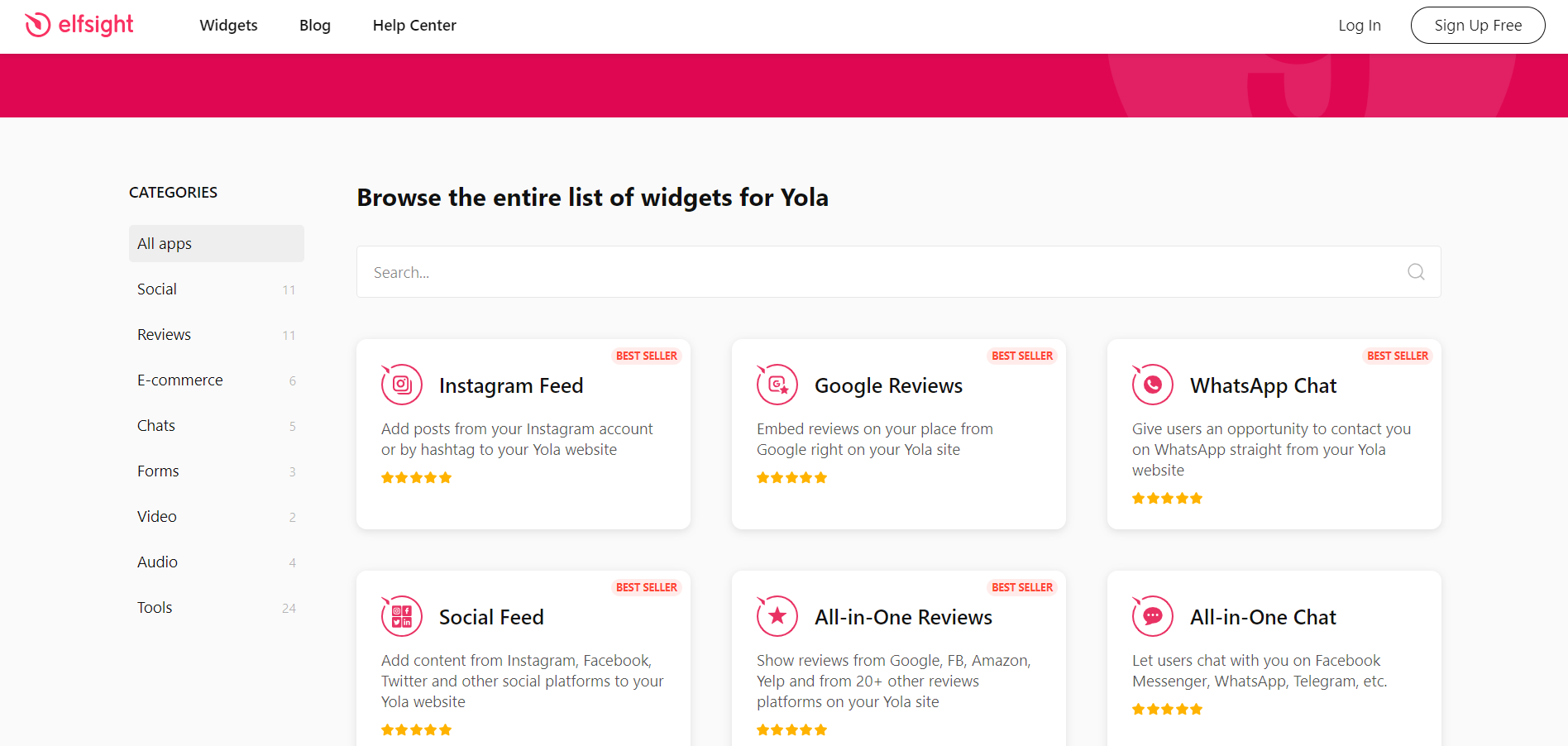
Marketing Features
Marketing featuresAssesses tools and options available for marketing.Score Components:
- SEO tools (40%): Effectiveness of SEO features.
- Marketing automation (30%): Availability and quality of marketing tools.
- Social Media integration (20%): Ease and depth of social media connectivity.
- Email marketing (10%): Quality and usability of email marketing tools.
 6.5
6.5
 7.2
7.2
🏆
Overall Winner: Jimdo
. Jimdo edges out Yola with a slightly higher score, indicating a more comprehensive set of marketing tools. Both platforms offer similar features, but Jimdo’s user-friendly interface and robust email marketing tools give it an advantage.

|

|
|
|---|---|---|
|
SEO Tools |
Basic built-in SEO tools with advanced third-party integrations |
Comprehensive SEO tools for effective optimization |
|
Email Marketing |
Available on higher plans, with Mailchimp integration |
Robust tools for creating, sending, and managing email campaigns |
|
Blogging |
Easy post creation with categories, tags, and comments management |
Comprehensive blogging tools with social media and analytics integration |
|
Social Media Integration |
Social media buttons and embedded feeds |
Wide range of integrations with social media platforms |
|
Analytics and Reporting |
Basic analytics with Google Analytics integration |
Integrated analytics for monitoring website traffic |
|
Ads and Promotions |
Available on higher plans, with automated advertising |
Tools for promotions and ad management, with Google Ads integration |
Customer Support
Customer supportEvaluates the quality and availability of support options.Score Components:
- Response time (40%): Speed of support responses.
- Support quality (30%): Effectiveness and helpfulness of the support.
- Availability (20%): Range of support channels (phone, chat, email).
- Resource richness (10%): Quality of self-help and educational materials.
 6.3
6.3
 6.8
6.8
🏆 Winner: Jimdo
. Jimdo edges out Yola in this category with a customer support score of 6.8 compared to Yola’s 6.3. Jimdo offers various customer support channels, including email support, a call center, a knowledge base on their website, and social media support. However, they do not currently offer live chat support.
On the other hand, Yola offers 24/7 email support to all users, with priority support for Bronze, Silver, and Gold customers promising responses in under 24 hours. Paid plan subscribers receive premium support with prioritized requests. Additionally, Yola provides a call-you-back service for personalized assistance and supports inquiries via social media channels.
Neither Yola nor Jimdo offer enterprise-level support, as they do not have enterprise plans.
Security
SecurityLooks at the platforms’ security measures and data protection.Score Components:
- Data protection (40%): Safeguards for user and customer data.
- SSL and encryption (30%): Implementation of secure connections.
- Compliance (20%): Adherence to industry security standards.
- Regular updates (10%): Frequency of security updates and patches.
 8.3
8.3
 8.3
8.3
🏆
Winner: It’s a tie
. Both Yola and Jimdo prioritize user data protection and website security. Yola ensures the security of users’ private data through encryption, access controls, and compliance with data protection regulations. They conduct regular security audits, utilize secure data centers, and educate users on best practices for data protection. Yola also employs robust security measures for websites, including SSL encryption, DDoS mitigation, firewalls, regular software updates, data backup, and recovery.
Jimdo, on the other hand, prioritizes data protection and GDPR compliance. They use AI for personalization without data training, employ IT security measures, and anonymize web analytics data. They integrate third-party tools securely, handle customer support data, and offer GDPR compliance tools. Jimdo also prioritizes website and user security by employing various protective measures, such as a strong firewall, DDoS protection, HTTPS encryption for all traffic, TLS encryption for messages and emails, and SSL certificates for domains. They maintain a dedicated team for legal and information security and advise users to keep their devices and software up to date and exercise caution online. These comprehensive security measures create a safe environment for Jimdo users and their websites.
AI Capabilities
AI capabilitiesMeasures the effectiveness of AI-driven features and tools.Score Components:
- Automation efficiency (40%): Impact of AI on streamlining processes.
- Personalization (30%): AI-driven customization for users or customers.
- AI-Assisted design (20%): Role of AI in website design and functionality.
- Data analysis (10%): Use of AI in interpreting user data and analytics.
 0.0
0.0
 6.0
6.0

|

|
|
|---|---|---|
|
AI Builder |
|
Jimdo’s AI builder offers mobile-friendly designs, access to copyright-free images, ecommerce capabilities with no commission fees, a legal text generator, social media integrations, personalized domains, and custom logo creation. |
|
AI Ecommerce features |
|
Jimdo’s AI capabilities are integrated into its ecommerce features, providing basic functionalities. These include AI-powered design suggestions for store layouts and image recommendations. |
|
AI Content Generation |
|
Jimdo AI currently doesn’t have a direct, dedicated content generation feature like some other website builders. |
|
Additional AI features |
|
Jimdo’s AI capabilities are very basic, mostly focused on website creation. It’s ADI guides you through a series of questions about your website, desired style, and goals. Based on your answers, it automatically generates a unique and responsive website layout complete with pre-filled content and images. |
🏆 Winner: Jimdo
. Jimdo, with a score of 6.0, has basic AI capabilities that assist in website creation, ecommerce features, and layout design. Although it doesn’t have a dedicated content generation feature, its AI-driven website creation process simplifies the site-building journey.

Yola, on the other hand, does not have any AI capabilities. This means that users will have to rely on their own skills and knowledge when creating and managing their websites with Yola.
User Management
User ManagementAssesses the platforms’ capabilities in managing user roles, permissions, and accessibility.Score Components:
- Role Customization (40%): Flexibility in creating and defining user roles and
permissions. - Ease of Management (30%): User interface and tools for managing users.
- Access Control (20%): Effectiveness of access control measures for different user
levels. - Scalability (10%): Ability to manage a growing number of users efficiently.
 7.3
7.3
 5.8
5.8
🏆 Winner: Yola
. Both Yola and Jimdo offer multi-user editing capabilities, but Yola provides a more flexible and comprehensive user management system.
- Yola supports multi-user editing capabilities, allowing different levels of access and control based on the plan chosen. The primary account holder, often referred to as the Owner or Administrator, possesses comprehensive control over the website, including the ability to edit content, manage settings, and extend invitations to collaborators for website modification. Collaborators or Editors, invited by the account holder, can edit the website to varying degrees, which might range from content editing to page management, depending on the permissions granted by Yola’s platform. The number of users permitted to edit a website and the scope of their roles and permissions may vary, typically increasing with higher-tier subscription plans.
- Jimdo’s Free, Start, and Basic Shop Plans allow website management by a single owner. The Grow Shop Plan permits two editors, including the account owner and one collaborator. The Business Plan extends collaboration to five editors, consisting of the account owner and four collaborators. The Unlimited Plan provides unlimited editors, fostering a collaborative team environment. The VIP Plan, designed for online stores, does not specify a limit on editors for websites.
Unfortunately, there is no detailed information available about the specific user roles and access levels for both Yola and Jimdo.
Additional Features

|

|
|
|---|---|---|
|
SSL Certificate |
|
|
|
Custom Domain |
|
|
|
Free Custom Domain Included |
|
|
|
International Domains |
|
|
|
Mobile Responsive |
|
|
|
Page Speed |
|
|
|
Website Builder Mobile App |
|
|
|
Convert a Website To An App |
|
|
|
Website Analytics |
|
|
|
Multilingual Sites |
|
|
|
Multiple Users |
|
|
User Feedback
Yola has received mostly positive reviews, with users appreciating its professional templates, ease of use, affordability, and customer service. However, some users have expressed dissatisfaction with aspects such as data security, customization limitations, and lack of certain features like chat support.
On the other hand, Jimdo has received mixed reviews. Users have praised its ease of use, no-code editor, and quick website development for basic sites. However, criticisms include outdated design, limited templates, and concerns about pricing transparency. Some users find it suitable for simple projects, while others find it lacking for more complex websites.
The making of this blog
We followed a clear, step-by-step process to write and research this article.
FAQ
Which platform is better for ecommerce, Yola or Jimdo?
Can I create a professional website without coding skills using Yola or Jimdo?
Which platform offers better website speed optimization, Yola or Jimdo?
How do Yola and Jimdo compare in terms of customer support?
Which platform has better AI capabilities, Yola or Jimdo?
Are Yola and Jimdo suitable for users looking for a platform with comprehensive marketing tools?
Which platform is recommended for users needing advanced user management features?
Do Yola and Jimdo offer mobile responsive designs?
Can I test Yola or Jimdo before committing to a paid plan?
Which platform is better for creating a multilingual site?











